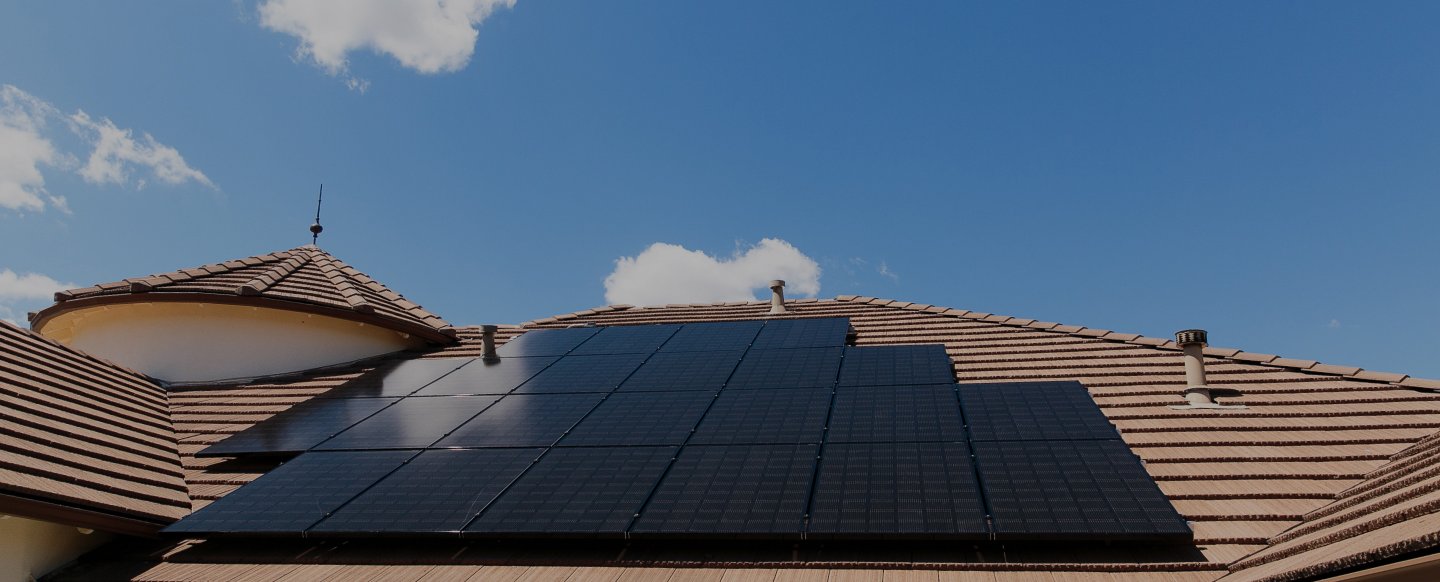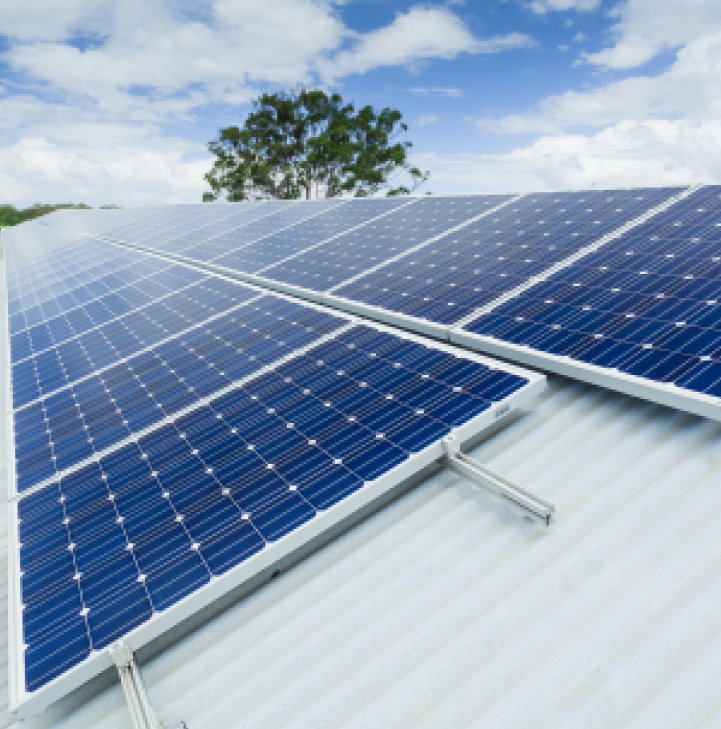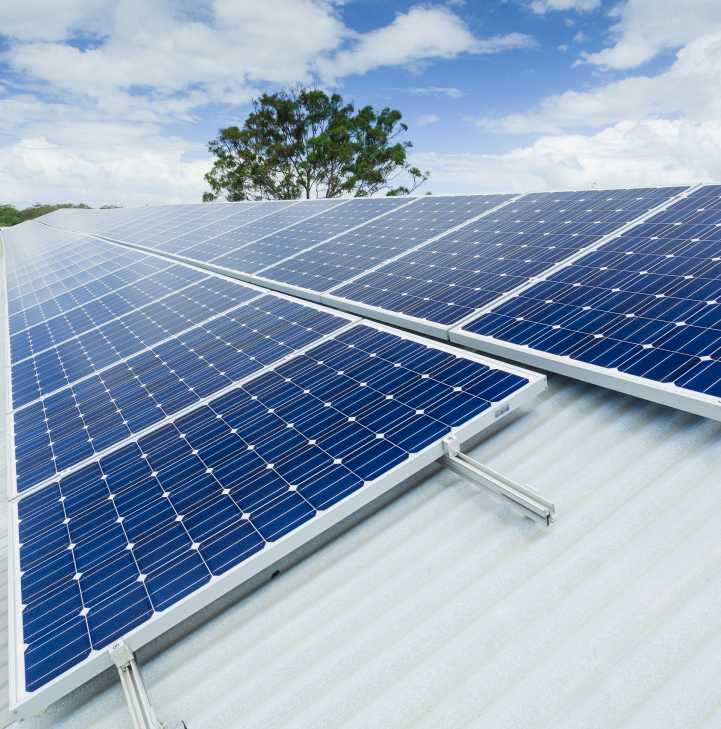
FINANCING & INCENTIVES
Generous government incentives reduce the cost of installing solar and energy storage systems, and a variety of payment options make these systems financially accessible.

Generous government incentives reduce the cost of installing solar and energy storage systems, and a variety of payment options make these systems financially accessible.
A variety of government incentive programs defray a significant piece of the cost to install a solar energy system and/or a solar energy storage system. To pay for the remainder, homeowners and commercial building owners have various options, including some that don’t require any upfront out-of-pocket expense. Typical payment methods are:



Paying cash for solar and/or solar energy storage provides a high return on investment with very low risk, which is a rare and valuable scenario as any financial expert can tell you. It also provides the greatest return on your investment.
Paying with a bank loan is a great way to go if you don’t have the cash to cover the full price tag. Some loans do not require a down payment. You own the system and benefit from 100% of the electricity savings and the Investment Tax Credit, as if you paid cash.
Paying with a bank loan is a great way to go if you don’t have the cash to cover the full price tag. Some loans do not require a down payment. You own the system and benefit from 100% of the electricity savings and the Investment Tax Credit, as if you paid cash.


Leases and Power Purchase Agreements (PPA) also enable you to install solar and/or energy storage with no upfront cost. A third party owns the system and the home or business owner benefits from electricity that is less expensive than the utility’s.
Citadel experts can present your options and help determine and secure the best financing method for your personal or business situation.
Read more about the payment methods in our blog post How to Pay for a Solar or Energy Storage System.
Many homeowners and business owners take advantage of home improvement or other loans to finance a new roof investment. Citadel offers this type of loan through one of our financial partners and can help you apply, or even complete your application for you.

Federal and state governments have implemented programs that make it easier financially to install solar energy systems at your home or business. Some leaders see renewable energy as a major weapon in the battle against global warming and a necessary part of any effort to reach ambitious climate change goals. Others do it to encourage job growth.
The main solar incentive programs relevant to Californians, which are described further below, are:
1. Net metering
2. The Investment Tax Credit
3. Accelerated or bonus depreciation (for commercial customers).
Federal and state governments have implemented programs that make it easier financially to install solar energy systems at your home or business. Some leaders see renewable energy as a major weapon in the battle against global warming and a necessary part of any effort to reach ambitious climate change goals. Others do it to encourage job growth.
The main solar incentive programs relevant to Californians, which are described further below, are:
1. Net metering
2. The Investment Tax Credit
3. Accelerated or bonus depreciation (for commercial customers).

State government leaders also support solar energy storage because they recognize the enormous environmental and economic benefits the technology presents. The main storage incentives relevant to California businesses and homeowners, which are described further below, are:

State government leaders also support solar energy storage because they recognize the enormous environmental and economic benefits the technology presents. The main storage incentives relevant to California businesses and homeowners, which are described further below, are:
The more money solar energy systems put in citizens’ pockets, the more people will be encouraged to install solar. That’s why California has a net metering (also called net energy metering or NEM) policy, which ensures that homeowners and business owners benefit from all the solar energy they produce, whether they use it or not.
Here’s how net metering works:
(If you want to hang onto your extra solar electricity rather than sending it into the utility’s grid, consider installing a solar energy storage system.)
| For Homeowners | For Businesses | |
| 2022 | 30% | 30% |
| 2023 | 22% | 22% |
| 2024 | 0% | 10% |

When you file your personal or business federal income tax return for the year in which your solar energy system or solar energy storage system was turned on, you claim a tax credit that reduces the total amount of taxes you owe.
It’s important to note that this is a tax credit, not a tax deduction. Deductions reduce your taxable income so you pay a bit less tax. A credit is worth a dollar-for-dollar reduction in what you pay the IRS. Let’s look at an example:
If your solar costs $25,000, you qualify for a $6,500 tax credit. So if you owe $18,000 in taxes when tax time comes around, you would deduct your $6,500 credit and only pay $11,500. It’s real money in the bank, and a wonderful way to celebrate going solar.
To claim your ITC, you or your tax preparer should use Form 5695 for the Residential Energy Credit.

When you file your personal or business federal income tax return for the year in which your solar energy system or solar energy storage system was turned on, you claim a tax credit that reduces the total amount of taxes you owe.
It’s important to note that this is a tax credit, not a tax deduction. Deductions reduce your taxable income so you pay a bit less tax. A credit is worth a dollar-for-dollar reduction in what you pay the IRS. Let’s look at an example:
If your solar costs $25,000, you qualify for a $6,500 tax credit. So if you owe $18,000 in taxes when tax time comes around, you would deduct your $6,500 credit and only pay $11,500. It’s real money in the bank, and a wonderful way to celebrate going solar.
To claim your ITC, you or your tax preparer should use Form 5695 for the Residential Energy Credit.




This website uses cookies for advertising and analytics purposes as described in our cookie policy. For more information and to set preferences, please click here. By continuing to browse this website, you accept our use of cookies.